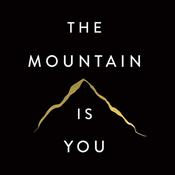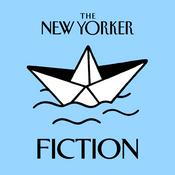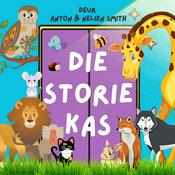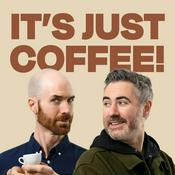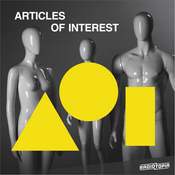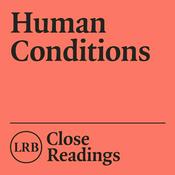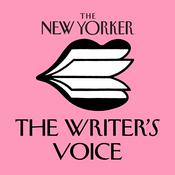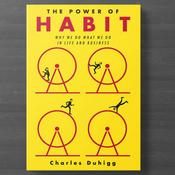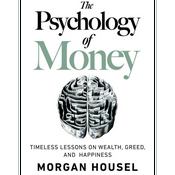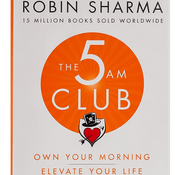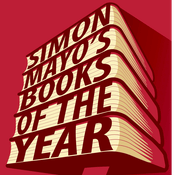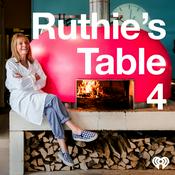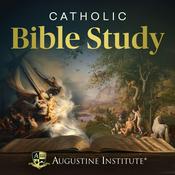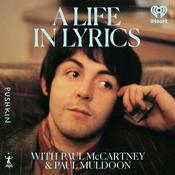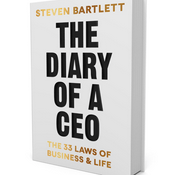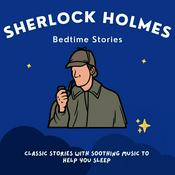883 episodes

Girls & Sex: Engaging Insights and Audio Summary of Peggy Orenstein's Exploration
2025/7/21 | 4 mins.
Chapter 1 What's Girls & Sex "Girls & Sex: Navigating the Complicated New Landscape" by Peggy Orenstein is a thought-provoking exploration of young women’s sexual experiences, attitudes, and challenges in a rapidly changing cultural environment. Through extensive interviews and research, Orenstein examines the impact of media, peer pressure, and societal expectations on adolescent girls' sexual behavior and identities. The book aims to shed light on the complexities surrounding female sexuality, emphasizing the importance of open conversations about consent, autonomy, and self-acceptance, while crafting a narrative that encourages both understanding and empowerment among young women. Chapter 2 The Background of Girls & Sex "Girls & Sex" by Peggy Orenstein, published in 2016, explores the complex landscape of adolescent girls' sexual experiences against the backdrop of a rapidly changing social context influenced by technology, social media, and shifting cultural norms surrounding sexuality. Orenstein's intent was to illuminate the pressures young women face in a society that often objectifies them, while also highlighting the nuanced relationships they navigate. Her research suggests that many girls contend with conflicting messages about sexuality — often torn between empowerment and vulnerability — prompting a deeper discourse about consent, intimacy, and the impact of contemporary gender expectations. By weaving personal anecdotes and extensive interviews, Orenstein seeks to foster understanding and open dialogue among parents, educators, and the girls themselves. Chapter 3 Quotes of Girls & Sex Girls & Sex quotes as follows: Here are some notable quotes from "Girls & Sex: Navigating the Complicated New Landscape" by Peggy Orenstein: "What you see is not what you get; people polish their images online to reflect their best selves." "For young women today, sex is both something to be enjoyed and something that comes with a lot of pressure and expectations." "Girls are bombarded with messages that tell them their worth is tied to their sexual desirability." "Healthy sexual relationships are rooted in communication, respect, and consent—values that must be emphasized in conversations with young people." "The narratives about women’s sexuality have shifted dramatically, but the underlying taboos and double standards still persist." "The rise of hookup culture has led to confusion around intimacy, often making girls feel vulnerable and uncertain in their sexual experiences." "It’s essential for girls to understand that they can assert their own boundaries and desires, rather than simply responding to societal pressures." "Empowerment through sexual agency is vital, but it must be grounded in reality and supported by proper education and resources." "Young women need to be given the tools to navigate their feelings about sex, relationships, and their own identities in a healthy way." "Every conversation about sex should include discussions about respect, consent, and the responsibility that comes with sexual choice." These quotes reflect Orenstein's insights on the complexities of young women's sexual experiences and the societal pressures they face. 1.Listen Girls & Sex Audiobook summary at Bookey https://www.bookey.app/audiobook/girls-&-sex 2.Buy Girls & Sex at Amazon https://www.amazon.com/s?k=girls+&+sex 3.Buy Girls & Sex at Kobo https://www.kobo.com/us/en/search?query=Girls & Sex&fclanguages=en 4.Search Girls & Sex at worldcat https://search.worldcat.org/en/search?q=Girls & Sex&offset=1

Nourishing Traditions: An Engaging Audio Summary of Sally Fallon Morell's Culinary Wisdom
2025/7/18 | 4 mins.
Chapter 1 What's Nourishing Traditions "Nourishing Traditions" by Sally Fallon Morell is a comprehensive cookbook and dietary guide that promotes a return to traditional food preparation methods and nutrient-dense, whole foods. Drawing on the research of Weston A. Price, the book emphasizes the importance of healthy fats, fermented foods, raw dairy, and the avoidance of processed ingredients. Fallon's approach encourages readers to embrace age-old culinary practices that enhance food's nutritional value while fostering overall health and wellness, presenting over 300 recipes along with detailed insights into the benefits of a natural, ancestral diet. Chapter 2 The Background of Nourishing Traditions Published in 1999, "Nourishing Traditions" by Sally Fallon Morell emerged during a growing societal awareness regarding the importance of diet and nutrition, as well as a rise in skepticism towards processed foods and modern dietary practices. The book arose from the author's intention to revive traditional dietary wisdom based on the research of Dr. Weston A. Price, who studied the diets of indigenous cultures in the early 20th century. By promoting whole, nutrient-dense, and traditionally prepared foods, Fallon sought to counteract the influence of industrialized food systems, advocating for a return to ancestral eating habits to improve overall health and well-being. Chapter 3 Quotes of Nourishing Traditions Nourishing Traditions quotes as follows: "We need to re-establish our food traditions and return to the ways of our ancestors who knew how to create health through their diet." "The problem with our modern diet is not just that we are eating too many processed foods, but that we are eating the wrong kinds of fats." "Raw milk is the most perfect food. It is loaded with macronutrients and micronutrients in their natural form that our bodies can absorb better than any other type of food." "Saturated fat is critical for our bodies to function properly; it supports every one of our body systems, including cellular structures and metabolism." "Nourishing Traditions is not just a cookbook; it’s a way of life, advocating for a return to wholesome ingredients and traditional preparation methods." "Fermented foods are an important part of any diet, as they provide us with beneficial probiotics and enzymes that aid in digestion and overall health." "Real food is about diversity and inclusion. It reflects the rich heritage of cuisines from around the world, preserving age-old traditions of nourishment." "The use of erythritol and many other artificial sweeteners should be avoided; they disrupt our natural cravings and may lead to weight gain and other health issues." "Bone broth is essentially a superfood, crucial for gut health, joint health, and more—it’s something we should all incorporate into our diets regularly." "Food is medicine, and the wisdom of traditional diets can guide us towards restoring our health and well-being in a world filled with processed foods and nutrition myths." 1.Listen Nourishing Traditions Audiobook summary at Bookey https://www.bookey.app/audiobook/nourishing-traditions 2.Buy Nourishing Traditions at Amazon https://www.amazon.com/s?k=nourishing+traditions 3.Buy Nourishing Traditions at Kobo https://www.kobo.com/us/en/search?query=Nourishing Traditions&fclanguages=en 4.Search Nourishing Traditions at worldcat https://search.worldcat.org/en/search?q=Nourishing Traditions&offset=1

Ina May's Guide to Childbirth: An Engaging Audio Summary of Natural Birth Wisdom
2025/7/16 | 3 mins.
Chapter 1 What's Ina May's Guide to Childbirth "Ina May's Guide to Childbirth" by Ina May Gaskin is a groundbreaking book that combines personal anecdotes, expert advice, and a deep understanding of the birthing process, emphasizing the innate capabilities of women's bodies to give birth. Gaskin, a renowned midwife, presents a holistic view of childbirth that fosters confidence and empowerment in expectant mothers while challenging the medicalization of birth. The book includes a wealth of real-life birth stories showcasing varying experiences, alongside practical information about labor, delivery, and postpartum care, making it both informative and inspirational for women seeking a positive birthing experience. Chapter 2 The Background of Ina May's Guide to Childbirth "Ina May's Guide to Childbirth" was published in 1994 during a period marked by a growing interest in natural and unmedicated childbirth practices, as a response to the increasing medicalization of birth in Western societies. Ina May Gaskin, a midwife and a key figure in the modern midwifery movement, aimed to empower women by providing them with knowledge and confidence about their bodies and the birthing process. Her intention was to promote a more holistic approach to childbirth, emphasizing empowerment, the importance of the birthing environment, and women's ability to trust their instincts. The book reflects the broader cultural shift towards alternative health practices and the feminist movement’s influence on reshaping attitudes about women's rights and childbirth. Chapter 3 Quotes of Ina May's Guide to Childbirth Ina May's Guide to Childbirth quotes as follows: "The way you give birth is, I believe, the way you learn to be a mother." "What’s important is to know that the body works best when it’s relaxed." "A woman's body knows how to give birth as well as a flower knows how to bloom." "If a woman doesn’t feel safe, she cannot give birth." "You can trust your body. You can trust your instincts." "The experience of giving birth is a powerful opportunity for personal transformation and growth." "Fear creates tension; tension obstructs the natural process of labor." "Birth is a natural process, not a medical procedure." "Women who have owned their births tend to speak of empowerment, confidence, and knowledge, while those who have handed their birth experience over to others often emphasize feelings of powerlessness." "Your body is capable of great things, and one of the greatest things is bringing new life into the world." 1.Listen Ina May's Guide to Childbirth Audiobook summary at Bookey https://www.bookey.app/audiobook/ina-may%27s-guide-to-childbirth 2.Buy Ina May's Guide to Childbirth at Amazon https://www.amazon.com/s?k=ina+may%27s+guide+to+childbirth 3.Buy Ina May's Guide to Childbirth at Kobo https://www.kobo.com/us/en/search?query=Ina May's Guide to Childbirth&fclanguages=en 4.Search Ina May's Guide to Childbirth at worldcat https://search.worldcat.org/en/search?q=Ina May's Guide to Childbirth&offset=1

The Assassin's Blade: An Engaging Audio Summary of Sarah J. Maas's Epic Tale
2025/7/15 | 4 mins.
Chapter 1 What's The Assassin's Blade "The Assassin's Blade" by Sarah J. Maas is a collection of five novellas set in the world of her popular "Throne of Glass" series, following the story of Celaena Sardothien, a skilled assassin. These tales explore Celaena's past, detailing her life as a feared assassin in the service of the King of Adarlan, her relationships with key characters like Sam Cortland, and her evolution from a ruthless killer to a character shaped by love, loyalty, and betrayal. Set against a backdrop of political intrigue and personal struggles, the novellas provide deeper insight into Celaena's motivations and the events that lead her to the main series. Chapter 2 The Background of The Assassin's Blade "The Assassin's Blade" is a collection of prequel novellas to Sarah J. Maas's popular series, "Throne of Glass," set in a fantasy world reminiscent of medieval Europe with themes of power, betrayal, and revenge. The narratives center around Celaena Sardothien, a skilled assassin, exploring her backstory and the socio-political turmoil of her society characterized by class disparities and oppressive regimes. Maas, originally intending to present a strong, complex female protagonist, blends elements of adventure and romance while examining themes of identity and moral ambiguity, reflecting broader societal issues like the fight against tyranny and the quest for autonomy in a patriarchal world. Chapter 3 Quotes of The Assassin's Blade The Assassin's Blade quotes as follows: Here are 10 notable quotes from "The Assassin's Blade" by Sarah J. Maas: "I am not a hero. I am not a savior. I am nothing more than a killer for hire." Reflecting Celaena’s acceptance of her nature as an assassin. "The world is not a wish-granting factory." A reminder that reality can be harsh and unforgiving. "You could rattle the stars. You could do anything, if only you dared." An empowering message about courage and ambition. "You are not just a killer. You are not just a blade. You are Celaena Sardothien!" A declaration of identity and strength. "I’d rather die than be a part of this contract. I’d rather die than accept a future where I have no power over my own destiny." Celaena’s fierce independence. "There are those who are born to be leaders, and those who rise to the occasion." A commentary on different types of strength and leadership. "Some choices can change everything; you just have to understand the consequences." A reflection on the weight of choices. "Love is not an ancient apple; pluck it and it will rot in your hand. Love is forged, not brought forth by chance." Insight into the nature of love and relationships. "We are all broken. That’s how the light gets in." A beautiful metaphor about imperfection and resilience. "There is no part of me that does not wish to be free. I want to be alive and not just existing." Celaena’s yearning for freedom and authenticity in her life. These quotes capture the essence of Celaena's journey, her struggles, and the themes of strength, identity, and love present throughout the novella. 1.Listen The Assassin's Blade Audiobook summary at Bookey https://www.bookey.app/audiobook/the-assassin%27s-blade 2.Buy The Assassin's Blade at Amazon https://www.amazon.com/s?k=the+assassin%27s+blade 3.Buy The Assassin's Blade at Kobo https://www.kobo.com/us/en/search?query=The Assassin's Blade&fclanguages=en 4.Search The Assassin's Blade at worldcat https://search.worldcat.org/en/search?q=The Assassin's Blade&offset=1

Fish: An Engaging Audio Summary of Stephen C. Lundin's Inspiring Fable
2025/7/14 | 3 mins.
Chapter 1 What's Fish "Fish!" by Stephen C. Lundin is a motivational business parable that draws inspiration from the vibrant Pike Place Fish Market in Seattle, where employees engage customers with enthusiasm and joy. The book illustrates how fostering a lively workplace culture can enhance employee morale and productivity. Through the story of a team that learns to apply the principles of play, presence, and appreciation, it emphasizes the importance of creating a positive work environment that energizes both employees and customers, ultimately driving success. Chapter 2 The Background of Fish "Fish! A Proven Way to Boost Morale and Improve Results" by Stephen C. Lundin was published in 2000, set against the backdrop of the early 21st-century corporate culture characterized by increasing demands for employee engagement and morale-boosting strategies. Lundin’s intention was to convey the importance of fostering a vibrant workplace culture through a unique allegorical narrative, inspired by the energetic and lively atmosphere of Pike Place Fish Market in Seattle. The book emerged during a time when organizations were grappling with issues of motivation, satisfaction, and productivity, making Lundin’s message about the power of joy and connection in the workplace particularly resonant. Chapter 3 Quotes of Fish Fish quotes as follows: Here are 10 memorable quotes from "Fish! A Remarkable Way to Boost Morale and Improve Results" by Stephen C. Lundin: "You don’t have to be a fishmonger to know that fish need water." "Choose your attitude. Instead of letting circumstances choose it for you, choose to be positive." "Play! If we truly look at our work, our lives, and even ourselves as a game, we might find more opportunities for joy." "Make someone's day! Simple acts of kindness can significantly change the atmosphere around you." "Be there! Being present for others works wonders, both in enhancing their experience and your own." "Do what you love! When you are passionate about your work, motivation will follow naturally." "It’s about creating a culture that expects you to be more than a cog in a wheel." "Work is a place where we can bring joy and make connections with one another." "The way you choose to respond to situations defines not just the moment but your entire career." "Fish! isn’t just about doing a job; it’s about embracing life fully, within and outside of work." These quotes encapsulate the essence of creating a positive and engaging work environment, fostering personal accountability, and emphasizing the importance of relationships in the workplace. 1.Listen Fish Audiobook summary at Bookey https://www.bookey.app/audiobook/fish 2.Buy Fish at Amazon https://www.amazon.com/s?k=fish 3.Buy Fish at Kobo https://www.kobo.com/us/en/search?query=Fish&fclanguages=en 4.Search Fish at worldcat https://search.worldcat.org/en/search?q=Fish&offset=1
More Arts podcasts
Trending Arts podcasts
About the Bestsellers Summary
Listen to the Bestsellers Summary, 99% Invisible and many other podcasts from around the world with the radio.net app

Get the free radio.net app
- Stations and podcasts to bookmark
- Stream via Wi-Fi or Bluetooth
- Supports Carplay & Android Auto
- Many other app features
Get the free radio.net app
- Stations and podcasts to bookmark
- Stream via Wi-Fi or Bluetooth
- Supports Carplay & Android Auto
- Many other app features


the Bestsellers Summary
download the app,
start listening.



